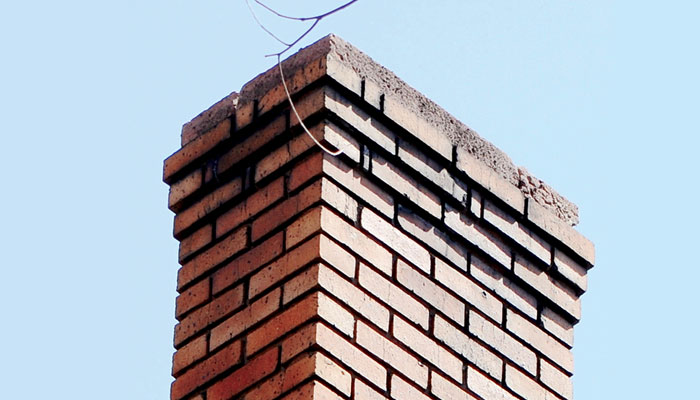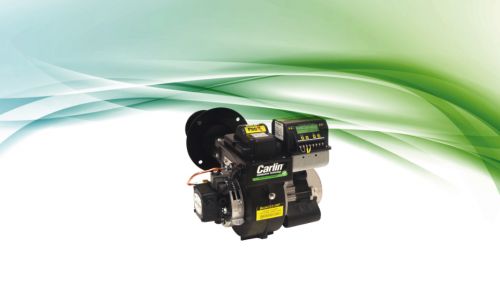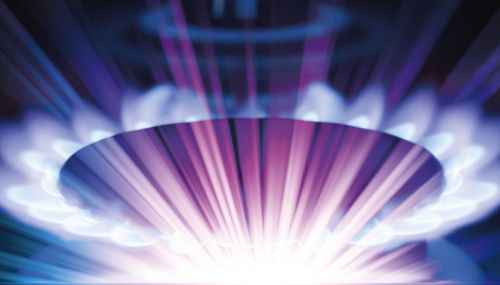Heating companies can protect themselves and please demanding customers by working with CSIA-certified experts
Heating companies that pay close attention to chimney issues and develop strong working relationships with chimney sweeps can do themselves a lot of favors.
By calling on chimney sweeps early and often, heating experts can avoid legal liability, prevent embarrassing moments with customers, and position themselves as best high-end contractors. Oil & Energy recently discussed the vital intersection of heating and venting issues with several industry experts.
George Lanthier, owner of Firedragon Enterprises and a longtime oilheat industry educator, recommends that heating companies never cut corners in regard to chimneys. They should always know their obligations under the code for their state and act accordingly. Depending on the state they are in and the type of appliance they are installing, the code might require them to inspect the chimney breach themselves for a new installation, or it might call for an expert inspection that is typically performed by a chimney sweep.
Litigation Targets
Companies can put themselves in harm’s way by making incorrect assurances regarding chimneys or power-venting appliances in their service contracts, he said. They should check all their contracts to make sure they are not making representations that could come back to haunt them in the event of a problem with a chimney or power venter. Companies can continue to inspect and service power venters, but they should do it on a time-and-materials basis, and not within a service contract, he said.
Lanthier also strongly recommends that heating contractors confine themselves to heating work and rely on certified chimney sweeps to do chimney repairs and install chimney liners. Most companies will find their insurance doesn’t help them if an employee damages a home doing chimney work or falls from a roof, he said. “I’ve been recommending for years that oil companies stay away from chimneys because of the liabilities,” he said.
Working on chimneys is dangerous, but so is ignoring them altogether, according to Lanthier. The best course of action is to tell customers about services available via the Chimney Safety Institute of America (CSIA) and even provide them with a form letter regarding chimneys and CSIA.
Some customers may prefer to work with sweeps that their heating company recommends, while others will choose to visit www.CSIA.org, which offers a Zip Code lookup for certified chimney sweeps. “If you ignore a chimney until there is a problem, that can lead to damage to the customer’s home,” he said.
Ashley Eldridge, Director of Education for CSIA, said, “We try to take the approach that every job could end up in court. People are litigious. We want to cover our bases.”
Even though the chimney is the purview of the chimney sweep, a venting problem that relates to the heating appliance can become a legal liability for the heating contractor, according to Lanthier. “It is a myth that oilheat systems don’t create carbon monoxide,” he added.
Learn the Basics
Chimney sweep John Pilger, owner of Chief Chimney Service Inc., in Smithtown, N.Y., works closely with oilheat companies and heating contractors on New York’s Long Island. He recommends that installers and technicians gain at least a basic understanding of chimney issues through the local chapters of industry groups such as the Oil & Energy Service Professionals (OESP). “Even if you don’t plan to service chimneys, it’s good to know what’s going on,” he said. Any OESP chapter or trade association that wants to offer training should call CSIA, he added. “We’ll get someone out there.”
Pilger is active in the National Fire Protection Association (NFPA), where he advocates for stronger chimney inspection requirements in NFPA 31, which is the code that covers liquid fuel burning equipment. While some states require nothing more than an installer’s inspection of the chimney breach for a new installation, he believes all new heating installations should be accompanied by at least a Level 2 inspection as recommended in NFPA 211, which is the Standard for Chimneys, Fireplaces, Vents and Solid Fuel Burning Appliances.
A Level 2 inspection is performed by a chimney sweep and includes a visual inspection by video scanning or other means to examine the internal surfaces and joints of all flue liners incorporated within the chimney. “NFPA 31 has an oil burner man’s inspection as the standard, which I feel is very weak,” he said. A Level 2 inspection is needed to detect cracks in the flue tiles, missing mortar joints and other important problems, he added.
Size Matters
When installing a new heating appliance, it is critical that the flue be of the right type and size to match the appliance. If a masonry flue is too large, Pilger said, the flue gases will stall and condense, causing the chimney to “rain” condensate that can damage flue surfaces.
A mismatched or damaged flue can also leave the appliance with insufficient draft, which compromises appliance performance. “The appliance won’t run at peak efficiency because it cannot meet minimum requirements for draft,” Pilger said.
CSIA’s Eldridge said a contractor can get embarrassed or even lose an account if a chimney problem develops with one of their installations. “When you pay attention to the chimney, you can avoid that angst of having a sweep call you out,” he said. “Imagine having a consumer put their trust in the HVAC guy and spend $10,000 on an installation then later read that the chimney should have been inspected. That could involve expensive litigation in an effort to correct those pre-existing problems.”
He said the majority of contractors are not attentive to the importance of a good venting system. “You need a properly functioning, properly vented system.” The venting “is absolutely part of the system, and the appliance determines the appropriate size and materials to get the best performance, and that is where the chimney sweep comes in.”
Modern, high-efficiency systems emit lower-temperature flue gases, so flue sizing has become far more important, according to Eldridge.
Customers are best served when the heating contractor and the chimney sweep work well together, according to Pilger. In an ideal world, the chimney sweep would prepare the chimney prior to a new installation, including a liner installation if needed, then the installer would be able to hook up the appliance to a perfectly matched flue.
Of course, we do not live in an ideal world, he added. “A lot of times I am called in as an afterthought by the homeowner, who tells me the contractor never said they needed the flue resized. I’m chalking that up to an uneducated contractor. If he is educated he knows how to read the manufacturer’s instructions, or he has gone to classes. The factory always stresses the importance of the venting system.”
Differentiate Yourself
Heating contractors and chimney sweeps might not live in an ideal world, but they can deliver optimum services to demanding customers by forming close working relationships, according to CSIA’s Eldridge. If a heating company is offering premium service, he said, it makes sense to promote expert chimney service by a CSIA-certified professional.
“If you have an HVAC company with a Cadillac attitude and you bring in a Cadillac sweep, the customer gets a Cadillac job from top to bottom,” Eldridge said. Proper venting improves efficiency, reduces emissions and extends the life of the appliance and the chimney—values that many customers care about.
A contractor who addresses the safety and performance issues associated with the chimney will impress homeowners who want only the best, and they will be willing to pay more, he said. “Those people want it done the best possible way,” Eldridge said. “They won’t quibble over price.”
In high-end markets, a heating company could gain a competitive advantage by talking up CSIA-certified chimney professionals at the point of sale and explaining the importance of proper venting, Eldridge added. The systems they install will perform better with fewer callbacks, and the contractors will look better in the eyes of the customer.
“It’s well worth the extra money for the peace of mind and the improved performance. The appliance will last longer and need less maintenance. These are real benefits,” he said. “By being the guy that does that right, you will rise above the rest of the knuckleheads,”





